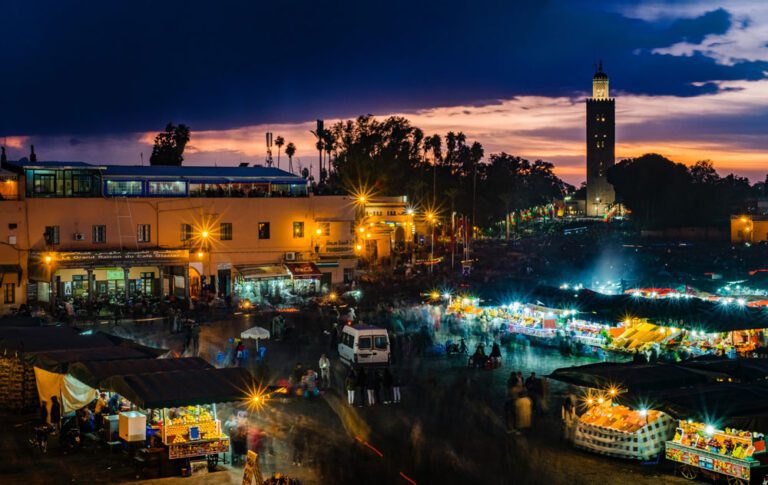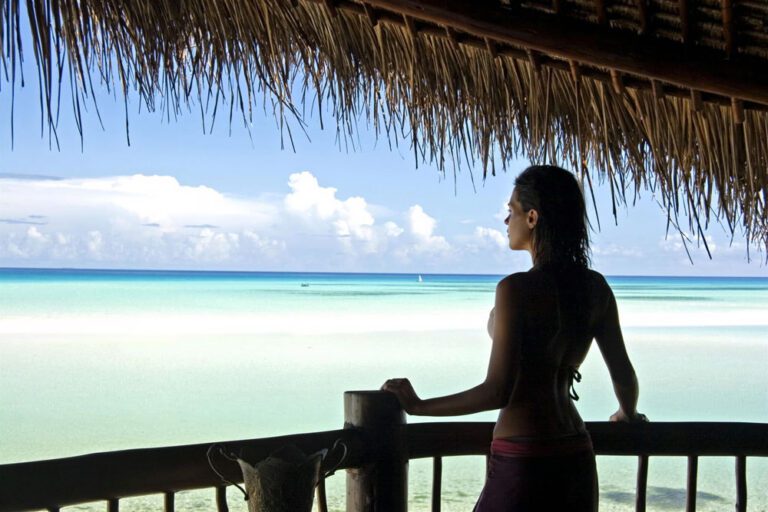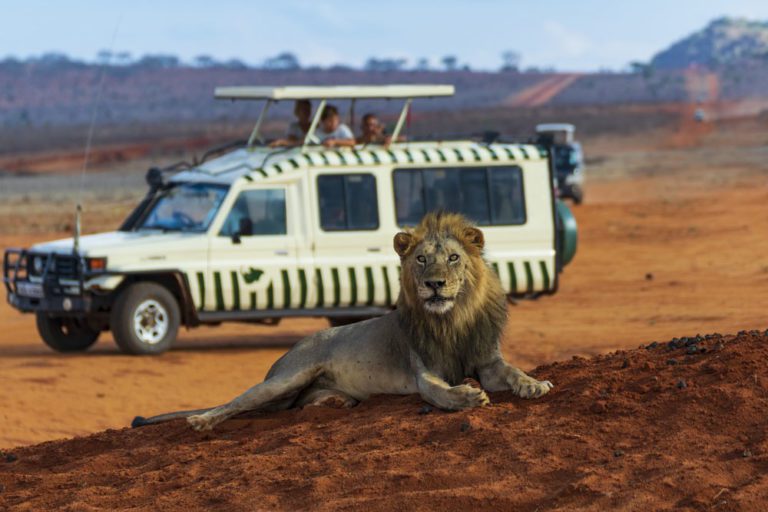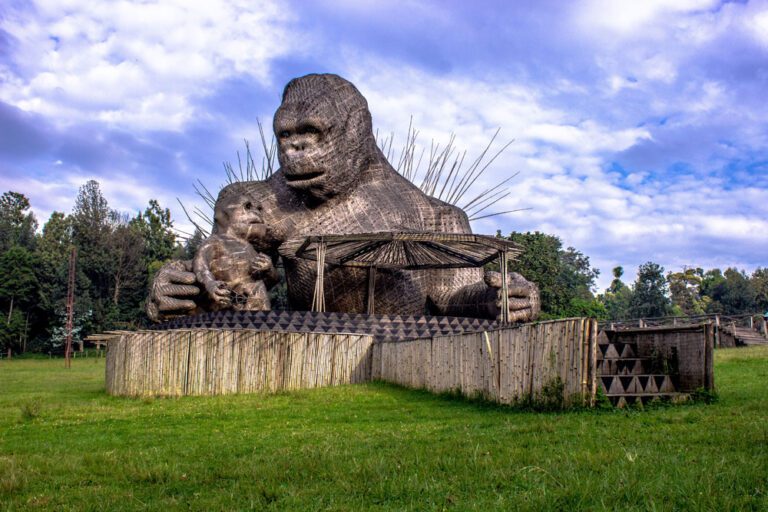9 Surprising Truths About African Safaris
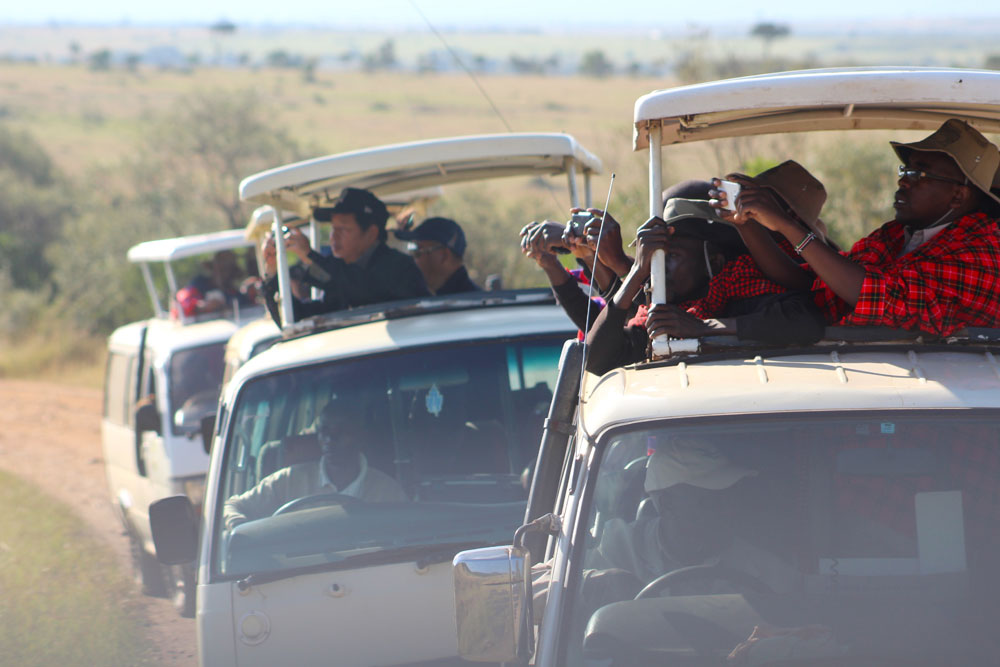
An African safari is the trip of a lifetime for many travelers. Getting to see majestic lions, elephants, and other wildlife up close is a dream come true. However, for first-timers, some things may come as a bit of a shock!
In this article, I’ll share 9 truths about African safaris that surprised me on my first visit to Tanzania’s Serengeti National Park. Consider this your cheat sheet for having the best possible safari experience.
1. The Massive Herds of Animals

Prepare to be amazed by the sheer number of gazelles and zebras! Once you spot that first graceful gazelle or striking zebra, don’t be shocked when your guide says “Oh, there’ll be many more where that came from!”
Soon you’ll stumble upon massive herds with hundreds of wildebeest and zebras. It’s like stumbling into a live National Geographic special. You quickly realize just how much wildlife calls the Serengeti home. They’re not anomalies; they’re everywhere!
At first, you diligently point and snap a photo of each gazelle you pass. After you’ve seen forty of them back-to-back, you realize they’re as common as squirrels in the park!
I’ll never forget laughing with my family about how we wished deer back home were as smart as gazelles at evading vehicles. It’s a truly wild sight to behold in person.
2. Seeing the Big Five Animals for the First Time

One of the biggest thrills of an African safari is seeing the so-called “Big Five” animals—lions, leopards, elephants, buffalo, and rhinos—in their natural habitat. I’ll never forget the sheer joy I felt when I spotted my first lion lounging under a tree. My inner child emerged, and I couldn’t stop smiling for the rest of the day!
Something about seeing these magnificent beasts awakens your sense of wonder. It transports you right back to being a kid watching Lion King or flipping through a picture book of African animals.
No matter how old you are, that very first glimpse of your dream safari animal will bring out your inner child-like excitement. Trust me, it’s an incredible feeling that stays with you for a long time.
Of course, some of the Big Five are easier to find than others. Lions, for instance, tend to be the most cooperative. Spotting the more elusive leopard or black rhino can be more hit or miss.
3. It May Take Time to Find All the Big Five
Now, you may think that on a safari, you’ll be able to quickly tick off seeing the Big Five, no problem. Prepare yourself: it often takes days to see them all, if you’re lucky enough to spot each one. Temper your expectations a bit.
In Tanzania’s Serengeti alone, rhinos and leopards are quite scarce. You’ll likely have better luck seeing rhinos in the Ngorongoro Crater area. But even elephants and buffalo, which are more common, aren’t necessarily a guarantee. A few days can pass before you catch a glimpse.
The experience is kind of like a scavenger hunt. Each new animal sighting feels like a thrilling prize. You might see a hundred gazelles, wildebeest, and zebras before finally spotting your first lion.
Savor the journey and the anticipation. Rushing to see all five immediately will only leave you frustrated. Appreciate each special animal encounter along the way.
4. The Bumpy, Dusty Roads

Once you’ve caught safari fever and are eager to spot more elusive animals, you’ll spend many hours bumping along the park’s dirt tracks. While absolutely necessary to reach remote areas, be warned: not all roads are smooth. In fact, some can be downright rocky and treacherous!
Safaris take place in wilderness areas, so paved highways are rare. You’ll feel each and every rock, hole, and ditch in the road on game drives. Pack cushions to soften your seat, or make friends with your fellow jeep riders – you’ll be getting up close and personal!
Because windows sometimes can’t close in safari vehicles, the dust swirling up from the roads also gets intense. Bring along scarves or bandanas to protect your face and head during the bumpiest stretches. You may look silly wearing one, but your lungs will thank you later.
5. Bathroom Breaks in the Bush
Speaking of getting personal in a jeep, let’s talk bathroom breaks. When nature calls in the middle of a safari, you can’t just dash behind any tree or bush. With all those lions and leopards roaming around, wandering off into the bushes by yourself is a big no-no.
Bathroom breaks on a safari mean popping a squat near the jeep, in plain sight of your group. Not the most glamorous situation, but when you gotta go, you gotta go!
Lucky for me, I was with family, so we cracked jokes and politely looked away while each person took their “pie in the Serengeti.” Just be prepared mentally, and it won’t phase you one bit.
6. Staying Inside the Safari Vehicle

No doubt about it, observing cheetahs from the safety of a vehicle is a million times better than being chased by one! For this reason, guides strictly prohibit tourists from leaving their jeeps except at designated spots. This is 100% for your own safety.
As much as you may want to get that perfect Instagram selfie with a giraffe, resist the urge to step outside your vehicle. These are still wild animals roaming free, not tame mascots.
Feeding or approaching animals puts them (and you) at risk. Enjoy their beauty from inside the vehicle or photograph them through an open window.
The same policy applies when your safari vehicle stops for the evening. After dark, you can’t casually stroll around camp unaccompanied. A staff member must escort you between your tent and the main lodge area when creatures are most active at night. Which brings me to my next point…
7. Animals Roaming Your Camp at Night

One of the wildest aspects of an African safari is hearing lions roar or hyenas cackle just outside your tent! At night, nearby animals like buffalo and elephants also forage very close to camp areas and tents. You’ll inevitably have some curious visitors.
Now, the camp staff do an amazing job keeping tourists safe from animals wandering into tents. But that doesn’t stop them from bumping into tent walls or making noises that prevent you from sleeping! One poor lady on our trip even had a hyena repeatedly try to enter her tent. Suffice to say, she didn’t sleep a wink that night.
For jumpy travelers, this extreme closeness to wildlife can be terrifying. Personally, I thought it was thrilling to feel so immersed in their environment… even if it did cost me some sleep!
Just know that the animals get very active and daring after dark. Don’t panic, but do alert staff if they seem too close for comfort.
8. The Friendliness of Staff & Guides
On the upside of being so close to wildlife, I was blown away by how educated, friendly, and helpful the camp staff were. From servers to groundskeepers to guides, they’ll enrich your safari experience in so many ways.
Many tourists strangely avoid interacting with the staff. What a mistake! The guides, especially, are treasure troves of information. They’ll recall amazing animal facts, teach you about conservation, and share local stories that you won’t find in any guidebook.
Since staff at the camps and lodges rotate frequently, they shared messages for friends at the next place we stayed. We felt like intrepid explorers, trusted with top-secret communiqués! The lighthearted camaraderie made the journey special. Don’t miss out on those connections.
9. Chilly Nights & Cold Showers
Packing for safari threw me for a loop. During the day, the African sun scorches without mercy. You need all your hot weather gear: hats, breathable shirts, sunscreen, and more. But once that fiery orange sun disappears below the horizon, temperatures sometimes drop to freezing!
I’m talking frigid enough to see your breath. Even in the height of summer, you’ll want wool socks, fleece jackets, mittens, and winter hats after dark. It’s best to dress in layers that you can peel off as the day heats up. Otherwise, your knees will knock all night long in your tent.
The chilly evenings also mean cold showers are common at some camps. Don’t expect piping-hot waterfall showers like in a fancy hotel. Safaris take place in remote areas, so hot water is a luxury.
I’ll admit, shrieking from that first icy splash of water is unavoidable. But you’ll warm up as you watch the incredible African sunrise afterward. Just grit your teeth, strip down, and make it quick! You can reward yourself later with a toasty campfire and blanket.
Key Takeaways from My Safari Experience
If you’re considering an African safari for the first time, keep these need-to-know tidbits in mind:
Frequently Asked Questions About African Safaris
If this is your first safari, you probably have lots of questions. Here are answers to some of the most common FAQs from first-timer travelers:
Q. How close can we get to the animals?
A. For safety, you must stay inside your designated safari vehicle. Most animals wander very close to the jeeps. It’s common to have elephants walk right beside you and lions resting just feet away.
Q. What vaccinations or medications do we need?
A. Malaria medication and routine vaccines like Hepatitis A and tetanus are recommended. Yellow fever vaccine may be required too. Speak to your doctor several months before your trip.
Q. Is it safe to travel there right now?
A. Some parts of Africa are not currently advisable to visit. Health risks and political unrest do exist in certain regions. Check government travel advisories for your destination. Popular safari spots are generally very safe for tourists.
Q. What should we wear?
A. Lightweight, neutral-colored clothes with long sleeves and pants will protect you from the sun and bugs. Bring a hat and sunglasses too. Dress in breathable layers that you can remove as it warms up.
Q. What photography gear is best?
A. A telephoto zoom lens in the 200mm+ range is great for magnifying distant animals. You’ll want at least a 24-70mm standard lens too. Bring plenty of extra batteries and memory cards! A binocular is also useful.
Q. How close to animals can we get on foot?
A. For your safety, you’ll only be able to exit the vehicle at designated spots, like lodges. Guided walking safaris do exist in some parks but require keeping a safe distance. Self-guided hiking is never permitted.
Q. What do we do with waste and trash?
A. Never litter, even biodegradable items. Safaris promote leaving no trace. Your guide will collect any trash you generate and dispose of it properly outside the park area.
Q. Will we have electricity and WiFi?
A. In remote camps, electricity may only be available at certain hours. Some have backup generators. WiFi is usually limited to main lodges rather than individual tents. Expect to unplug for chunks of time.
Q. Do we need to speak the local language?
A. For a safari, speaking English is fine as the staff speak good English. But learning a few phrases in Swahili or the local language like “hello” or “thank you” is always appreciated. Guides enjoy teaching tourists some keywords too.
Q. How much should we tip guides and staff?
A. Tipping is customary, usually around $15-20 USD per person, per day for guides, and $10-15 per day for lodge staff. For exceptional service, tips at the higher end or more are appreciated.
The Bottom Line
A safari in Africa might surprise you in many ways, but that’s part of what makes it such a magical adventure! The joy of seeing rare animals, camaraderie with new friends, and the wonders of nature you experience will far outweigh any initial shocks.
If you approach with an open mind, positive attitude, and sense of humor, an African safari is sure to be a breathtaking, life-enriching trip you’ll never forget. What are you waiting for? Start planning your bucket list safari vacation today!

